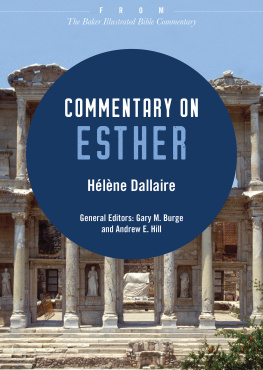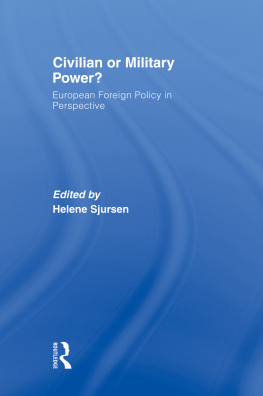Hélène Landemore - Democratic Reason
Here you can read online Hélène Landemore - Democratic Reason full text of the book (entire story) in english for free. Download pdf and epub, get meaning, cover and reviews about this ebook. year: 2012, publisher: Princeton University Press, genre: Politics. Description of the work, (preface) as well as reviews are available. Best literature library LitArk.com created for fans of good reading and offers a wide selection of genres:
Romance novel
Science fiction
Adventure
Detective
Science
History
Home and family
Prose
Art
Politics
Computer
Non-fiction
Religion
Business
Children
Humor
Choose a favorite category and find really read worthwhile books. Enjoy immersion in the world of imagination, feel the emotions of the characters or learn something new for yourself, make an fascinating discovery.

- Book:Democratic Reason
- Author:
- Publisher:Princeton University Press
- Genre:
- Year:2012
- Rating:4 / 5
- Favourites:Add to favourites
- Your mark:
- 80
- 1
- 2
- 3
- 4
- 5
Democratic Reason: summary, description and annotation
We offer to read an annotation, description, summary or preface (depends on what the author of the book "Democratic Reason" wrote himself). If you haven't found the necessary information about the book — write in the comments, we will try to find it.
Democratic Reason — read online for free the complete book (whole text) full work
Below is the text of the book, divided by pages. System saving the place of the last page read, allows you to conveniently read the book "Democratic Reason" online for free, without having to search again every time where you left off. Put a bookmark, and you can go to the page where you finished reading at any time.
Font size:
Interval:
Bookmark:
Democratic Reason
Democratic Reason
POLITICS, COLLECTIVE INTELLIGENCE, AND THE RULE OF THE MANY
Hlne Landemore
PRINCETON UNIVERSITY PRESS
Princeton and Oxford
Copyright 2013 by Princeton University Press
Published by Princeton University Press, 41 William Street, Princeton, New Jersey 08540 In the United Kingdom: Princeton University Press, 6 Oxford Street, Woodstock, Oxfordshire OX20 1TW
press.princeton.edu
All Rights Reserved
Library of Congress Cataloging-in-Publication Data
Landemore, Hlne, 1976
Democratic reason : politics, collective intelligence, and the rule of the many / Hlne Landemore.
p. cm.
Includes bibliographical references and index.
ISBN 978-0-691-15565-4 (hardcover : alk. paper) 1. Democracy. 2. DemocracyPhilosophy. 3. Majorities. I. Title.
JC423.L3355 2012
321.8dc23
2012020314
British Library Cataloging-in-Publication Data is available
This book has been composed in Sabon
Printed on acid-free paper. 
Printed in the United States of America
10 9 8 7 6 5 4 3 2 1
To my parents
The many, who are not as individuals excellent men, nevertheless can, when they have come together, be better than the few best people, not individually but collectively, just as feasts to which many contribute are better than feasts provided at one persons expense.
Aristotle
Democracy is the recurrent suspicion that more than half of the people are right more than half of the time.
E. B. White
Contents
Acknowledgments
AS BEFITS A BOOK ON the topic of collective intelligence, I should start by acknowledging that this book would not have been possible without many, many minds besides my own. I might not be able to do justice to all of them, but I hope that the resulting work does and, importantly, verifies, to a degree, its own thesis!
This book originates in a PhD dissertation conducted under the supervision of my advisors at Harvard University. Richard Tuck will probably not recognize his influence in the ideas advocated in it, and yet they benefited greatly from our many discussions. Jenny Mansbridge was a strong supporter of the project from the beginning, and it owes a lot to her insight and unfailing enthusiasm. Im also grateful for Nancy Rosenblums wisdom and sharp advice.
I owe a special debt to Jon Elster, my external advisor from Columbia University and informal mentor for many years, who encouraged me to think boldly and proved crucial in shaping the final version of the manuscript both through his direct comments and the common work we did at the Collge de France in Paris in 20072008, including the organization of a conference, now turned into a book, on collective wisdom.
My next greatest debt goes to Scott Page, whose work on the centrality of cognitive diversity in the phenomenon of collective intelligence was such a revelation and provided me with the missing argumentative link between the epistemic value of democratic procedures and their inclusiveness. Im grateful for his insights and the time he took to reread some of the passages in this book.
From my time at Harvard University, I would also like to thank the scholars I interacted with at the Kennedy Schools Center for Ethics, including Amalia Amaya, Michael Blake, Japa Pallikkathayil, Simon Rippon, and Annie Stilz; the members of the Project on Justice, Welfare, and Economics at the Weatherhead Center for International Affairs, particularly professors Amartya Sen, Thomas Scanlon, and Frank Michelman, as well as Quoc-Ahn Do (for one long discussion over coffee involving questions of threshold and maze metaphors); Kyoko Sato, then a colleague at the Center for European Studies; and the participants in the Harvard Graduate Political Theory Workshop, in particular professors Michael Frazer, Michael Rosen, and Eric Beerbohm, as well as Josh Cherniss, Sam Goldman, David Grewal, Susan Hamilton, Sean Ingham, Jo Kochanek, Matt Landauer, Lucas Stanczyck, and Elina Treyger.
From my year at the Collge de France in Paris, I would like to thank Pierre Rosanvallon, who invited me to present my work at his seminar and whose course on democracy at MIT a few years back had initially sparked my interest in the Condorcet Jury Theorem; and Florent Gunard for useful comments on this same presentation and a friendly collaboration on other projects.
From my semester at Brown University, I would like to thank the members of the Political Theory Project, specifically David Estlund, whose work on epistemic democracy is so foundational to mine, Sharon Krause, John Tomasi, and the group of young scholars I had the privilege to interact with there: Jason Brennan, Corey Brettschneider, Barbara Buckins, Yvonne Chiu, Emily Nacol, and Andrew Volmert.
I am now blessed with some wonderful colleagues at Yale University. Bryan Garsten, Karuna Mantena, Andrew March, and Paulina Ochoa, as well as Deme Kasimis (now at California State Long Beach) and Daniel Viehoff (from the University of Sheffield), who both joined our group that year, deserve special credit for spending time and brain power helping me improve a chapter that, unfortunately, did not make the cut (sorry!).
I am grateful to the jury of the Montreal Political Theory Workshop Award at McGill University, who recognized my work when it was still in search of a publisher. Arash Abizadeh, Pablo Gilabaert, Dominique Leydet, Jacob Levy, Catherine Lu, Christian Nadeau, Hasana Sharp, Stuart Soroka, Christina Tarnopolsky, Daniel Weinstock, Jrgen de Wispelaere, and the other participants in the workshop provided invaluable comments on an advance draft of this book and made it infinitely better.
Among the many other people who helped along the way, Id like to thank Gerald Gaus, Gerry Mackie, Bernard Manin, John McCormick, Andrew Rehfeld, Keith Sutherland, and Nadia Urbinati. Thank you also to Rob Tempio and the team at Princeton University Press for their impressive professionalism. Thank you to the anonymous reviewer for that press for his endorsement and constructive criticisms. Finally, very warm thanks to Erin Pineda and Michael Turner for their help in editing the manuscript and tracking references.
A number of institutions supported my research over the last few years. At Harvard University, the Government Department; the Center for Ethics at the Kennedy School; the Project on Justice, Welfare, and Economics of the Weatherhead Center for International Affairs; and the Minda de Gnzburg Center for European Studies offered me space and resources. The Collge de France, Brown University, and MIT provided welcome shelters for the two years before I found a home at Yale University.
I also want to thank the core of family and friends that have been with me, even at a distance, through the highs and lows of that academic adventure (and many nonacademic ones as well): my parents first and foremost, Grard and Jacqueline, to whom this book is dedicated; my sister Marie and my brother Pierre; and a group of inspiring women that Im lucky to call friends: Antonia, Hlne, Isabelle, Karine, Meredith, Sandra, and Susan; and finally, Darko, my partner in life and the father of my beautiful daughter. You came at the end of this long journey and made it all worth it.
Prologue
ON MAY 29, 2005, France held a referendum on ratifying the European Union Constitution. Contrary to the hopes and expectations of the political and intellectual elites, the French people decided to reject this constitutional treaty. Commentators were all but unanimous in their condemnation of the result. Doubtless, they said, the people had gotten it all wrong; they had taken an ill-chosen opportunity to sanction the government (and Jacques Chirac, then the president of France, in particular), thereby irresponsibly sinking the European project.
Next pageFont size:
Interval:
Bookmark:
Similar books «Democratic Reason»
Look at similar books to Democratic Reason. We have selected literature similar in name and meaning in the hope of providing readers with more options to find new, interesting, not yet read works.
Discussion, reviews of the book Democratic Reason and just readers' own opinions. Leave your comments, write what you think about the work, its meaning or the main characters. Specify what exactly you liked and what you didn't like, and why you think so.









